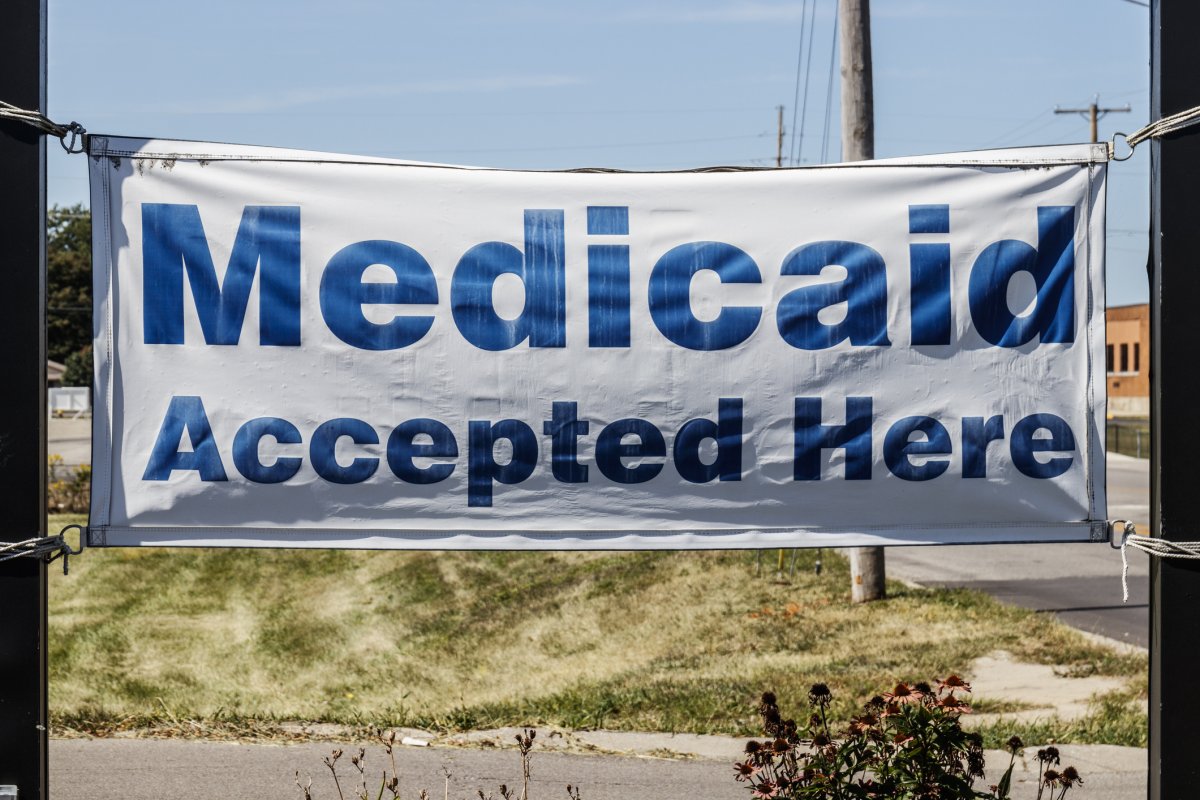
House Republicans have unveiled legislation that would mandate certain Medicaid recipients complete 80 hours per month of “community engagement”—including work, education, job training or volunteering—to retain their benefits, reviving a long-standing GOP goal actively promoted during President Donald Trump‘s first term.
Why It Matters
A budget reconciliation bill passed by the House of Representatives in April but it instructs the House Committee on Energy and Commerce, which has jurisdiction over Medicaid, to slash the Department of Health and Human Services’ budget by $880 billion over 10 years—sparking concerns about cuts to the nation’s largest health insurance program.
Critics warn it may result in the loss of coverage, particularly among low-income adults. Darbin Wofford, deputy director of health care at Third Way, a center-left think tank, told Newsweek millions would lose their coverage “all to pay for tax cuts for the wealthy.”
Proponents argue the policy would promote workforce participation and reduce government dependency, as well as reducing fraudulent Medicaid claims.
What To Know
The proposed Medicaid reform bill includes several significant changes aimed at reducing federal spending.
One key provision introduces work requirements, mandating that able-bodied adults without dependents must participate in “community engagement” activities—such as employment or volunteer work—for at least 80 hours per month to remain eligible for Medicaid. States would be responsible for enforcement and reporting.
A 2023 Congressional Budget Office report found that implementing Medicaid work requirements for people aged 19-55 would cut federal spending by around $109 billion over a decade. But it would also cause an estimated 600,000 people to lose their health insurance. It would also shift $65 billion in costs to states.
The policy mirrors initiatives from the first Trump administration that were blocked in court. In 2019, federal judges struck down work requirements approved for Arkansas and Kentucky, ruling they failed to align with Medicaid’s core mission of providing health coverage. In Arkansas, more than 18,000 people were dropped from Medicaid in 2018 before the courts intervened.

GETTY
Committee members confirmed last week they would not pursue the more aggressive cost-saving plans proposed earlier this year in a separate budget blueprint. House Speaker Mike Johnson confirmed that the enhanced federal medical assistance percentage (FMAP), which determines the federal share of Medicaid funding, will not be changed.
Johnson also said it is unlikely that lawmakers will push for per capita funding caps on Medicaid funds sent to states.
However, the bill also calls for more frequent eligibility checks, requiring Medicaid users to undergo income verification twice a year instead of the current annual review.
The bill earmarks a reduction of federal matching funds for Medicaid expansion populations, decreasing the current 90 percent federal contribution to the standard range of 50 to 83 percent. This shift would place more financial responsibility on state governments.
The legislation also proposes new cost-sharing requirements for certain Medicaid recipients, which would increase their out-of-pocket expenses.
What People Are Saying
Darbin Wofford, deputy director of health care at Third Way, a center-left think tank, told Newsweek in an emailed statement: ” No matter how Republicans try to spin it, this bill means major cuts to the Medicaid program. This package will mean millions of people losing their coverage and exploding our medical debt crisis, all to pay for tax cuts for the wealthy.”
GOP Congressman Brett Guthrie of Kentucky, chairman of the House Committee on Energy and Commerce, said: “When so many Americans who are truly in need rely on Medicaid for lifesaving services, Washington can’t afford to undermine the program further by subsidizing capable adults who choose not to work.
“That’s why our bill would implement sensible work requirements. Every other capable adult works to afford health care. Half of all Americans get insurance through work, seniors on Medicare get coverage because they paid into the trust fund, and veterans earned their care through their service to our country.”
Joan Alker, executive director of Georgetown University’s Center for Children and Families, said: “Work requirements have been shown to lead to coverage losses without increasing employment. Most Medicaid enrollees who can work are already working. This will just create more red tape.”
New Jersey Representative Frank Pallone, the ranking Democrat on the House Energy and Commerce Committee, told CNN: “This is an attack on poor people under the guise of promoting work.”
What’s Next
The bill is due for review by the Energy and Commerce Committee this week.





